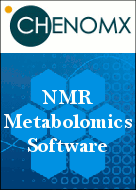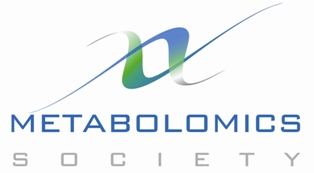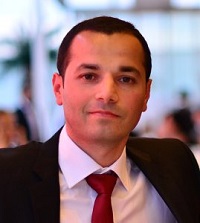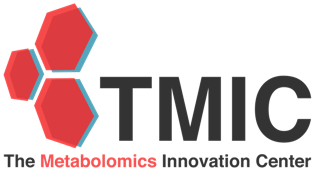Metabolomics
2016: Scientific highlights from the annual Metabolomics
conference
Lorraine Brennan1,
Aifric O’Sullivan1, Stacey Reinke2,
Justin van der Hooft3, Reza M Salek4,
and Darren J Creek5
1University College Dublin, Dublin, Ireland
2Murdoch University, Murdoch, Australia
3University of Glasgow, Glasgow, United Kingdom
4European Molecular Biology Laboratory, European
Bioinformatics Institute (EMBL-EBI) Hinxton, Cambridge, UK
5Monash Institute of Pharmaceutical Sciences,
Monash University, Parkville, Australia
The 12
th annual international conference of
the Metabolomics Society was held in Dublin Ireland from June 27
th
to July 30
th 2016, and lived up to its reputation as
the highlight of the metabolomics calendar. With over 600 oral
and poster presentations and almost 1000 attendees, this was the
largest attendance at a metabolomics conference in Europe to
date. The conference provided an opportunity for both
experienced and novice metabolomics researchers to share the
latest methodologies and findings across diverse applications.
The full list of abstracts can be viewed at
www.metabolomics2016.org
and some of the most memorable moments are described here:
Plenary Lectures
Highlights of the 12
th annual metabolomics
conference were the inspiring Plenary Sessions.
Professor
Jeremy Nicholson (Imperial College, London) opened the
conference with a superb overview of what metabolic profiling
can achieve. Of particular note was the development of the
National Phenome Centres, which now has the ability to analyse
patient and population-based samples with the goal to improve
patient stratification through the use of metabolic phenotyping.
Prof Nicholson also gave elegant examples of where metabolic
profiling is at the forefront in developing our understanding of
host-gut microbiota interactions. Finally, he gave a futuristic
vision of how we can start to visualise metabolic data in
multiple-dimensions.
Professor Luke O’Neill from Trinity College Dublin
(Ireland) delivered a fascinating talk about the interplay
between metabolism and immunity. He elegantly showed how
activated M1 macrophages have a reduction in respiration and
malfunction of the Krebs cycle, leading to accumulation of
succinate and citrate which act as signals to alter immune
function. Other aspects of this exciting talk were the potential
role for metabolic inhibitors as novel therapeutic approaches
for inflammatory diseases. This talk was an inspiring example of
how the use of metabolomics has enabled a paradigm shift in
thinking in relation to immunity and infection.
Professor Ines Thiele (University of Luxembourg)
presented a great overview of the computational modelling
approaches that her group use to model human metabolism. She
gave an exciting description of the “virtual metabolic
human”. The application of these models in combination
with experimental data can allow one to examine how nutrition
and genetics can impact on health.
Professor Tsutomu Masujima (RIKEN, Japan) delivered the
final Plenary Lecture on the topic of Direct Metabolomics for
Plant Single Cells. In his lecture he gave an overview of
metabolomic analysis on live single-cells. This exciting
technological talk demonstrated new and exciting avenues for
MS-metabolomics and was an excellent close to the scientific
sessions.

Figure 1. Professor Jeremy Nicholson presenting the
opening Plenary Lecture at Metabolomics 2016.
Early-career Members Network (EMN)
The EMN hosted a number of social, scientific and
career-based events throughout the conference, including two
highly anticipated workshops:
Career Development and
The
Importance of Experimental Design, Quality Assurance, and
Quality Control in Metabolomics.
Professor Jules
Griffin (University of Cambridge, UK) kicked off the
morning session with an insightful recollection of his own
academic career including tips to his younger self. During this
time, he also shared motivating tips for those wishing to follow
the same career path.
Sinead Cullen (Life Science
Recruitment, Ireland) followed with a valuable presentation on
how to make oneself competitive in the science industry job
market. In the
Experimental Design workshop,
Professor
David Broadhurst (Edith Cowan University, Australia) used
computer simulation to provide a fast-paced overview of the
importance of estimating uncertainty in metabolomics
experiments.
Dr Warwick Dunn (University of Birmingham,
UK) then followed with an essential discussion of the analytical
and quality assurance measures that are necessary in
metabolomics experiments. The third and final speaker,
Dr
Julia Kuligowski (Health Research Institute La Fe, Spain)
explained quality control (QC) through data cleaning and how
QC-based signal correction can be employed to improve data
quality.
Two dedicated early-career oral sessions demonstrated the
breadth of high-quality metabolomics research being performed by
students and early-career post-doctoral scientists. Over 35
early-career travel award winners presented in the oral and
poster sessions, including the prestigious Metabolomics Society
prize-winners: Dr Andrew Palmer (European Molecular Biology
Laboratory, Germany) described technical advances in MALDI
imaging workflows to underpin applications in spatial
metabolomics, and Helena Gibbons (University College Dublin,
Ireland) demonstrated a metabolomics approach to predict dietary
patterns.

Figure 2. The poster sessions at
Metabolomics 2016 were a highlight for many attendees.
The major event hosted by the EMN in Dublin was the EMN
Reception, with over 100 attendees. At this event, early-career
members heard from
Professor Mark Viant (University of
Birmingham, UK), the former Metabolomics Society President who
started the EMN. Professor Viant provided a history of the EMN
as well as thoughts for the future of this network. The EMN
Committee also unveiled the new online discussion forum (
http://www.metabolomics-forum.com/).
This forum, which is a combined continuation of earlier
metabolomics-related forums, will provide a valuable platform
for the entire metabolomics community to ask questions and
facilitate knowledge transfer.
Nutrition and food metabolomics
Nutrition and food metabolomics was a prominent theme in the
Metabolomics 2016 programme, reflecting the significant growth
of metabolomics applications in food, nutrition, and health
research and the expanding literature base. There were five
dedicated sessions for nutrition and food including; “Crop
quality and food sustainability”, “Foodomics and food quality”,
“Biomarkers of nutrition research”, “Nutrition and metabolism”,
and “Metabolomic analysis of challenge tests”. Keynote speakers
Professor Antonio Granell (Polytechnic University,
Valencia, Spain) and
Professor Melissa Fitzgerald
(University of Queensland, Australia) led excellent sessions
focused on metabolomics in crops, foods, and sustainability
research. Both keynotes highlighted the strengths of
metabolomics in the field with a particular emphasis on food
quality from nutrition and sensory perspectives. Dr Fitzgerald
connected sensory attributes of rice varieties with metabolites
and further to genetic markers for those compounds. This
metabolomic-driven pipeline offers opportunities for plant
breeders to develop varieties that are more appealing to the
consumer, resulting in higher market value. Other highlights
from these sessions included
Dr Linda Oude Griep
(Imperial College London, UK) describing a metabolome-wide
approach for identifying biomarkers of fruit intake across a
large diverse cohort in the INTERMAP study. On the other
extreme,
Dr Gabi Kastenmüller (Helmholtz Zentrum
München, Germany) and colleagues described the application of
multiple metabolomics methodologies across a range of biofluids
in response to several metabolic challenges in the relatively
smaller sample of participants in the Humet Study. Both studies
highlight the significant potential and the challenges in
nutritional metabolomics research that demand infrastructures to
store, integrate, and analyse complex multi-dimensional data.
Computational metabolomics and technical advancements
This year, as before, we saw great progress in the
development of new computational tools, algorithms, and software
for metabolomics data analysis and data handling. Several
pre-conference workshops focused on computational tools
including
Data Sharing and Standardisation organised by
Dr Reza Salek (EMBL-EBI) and data standards task group,
MetaRbolomics:
The R toolbox for Metabolomics, organised by
Dr Jan
Stanstrup (Steno Diabetes Center, Denmark) and
Dr
Steffen Neumann (Leibniz Institute of Plant Biochemistry,
Germany), and
Computational Workflows and Workflow Engines
organised by
Dr Christoph Steinbeck (EMBL-EBI, UK). Many
innovative tools and algorithms were presented in the oral and
poster sessions including batch correction strategies, power and
multiblock analysis, metabolite identification and spectral
library search engines. Likewise, new advances in instruments
and methodologies were presented from both academics and
industry, including a popular session focused on improving the
identification of metabolites.
Summary
The central role of metabolomics for enhancing our
understanding of biology, from the origins of metabolism, to
cells, organisms, diseases, populations and ecosystems, was
repeatedly emphasised throughout the conference. A unique
session about ‘Green Systems Biology’ was a classic example that
demonstrated the integration of metabolomics with other
systems-based tools to facilitate improved outcomes for plants,
animals, and the environment. The quality and quantity of
metabolomics science on display at Metabolomics 2016 was, as
expected, matched by the Dublin hospitality that nurtured the
development of new friendships and collaborations to continue to
develop the metabolomics community. As the field continues to
progress at a rapid rate, planning is well-advanced for the 2017
annual Metabolomics conference to be held in Brisbane,
Australia, from 26-29 June, 2017, with the theme of ‘Building
Bridges’ (
www.metabolomics2017.org).
Please note: If you know of any metabolomics research
programs, software, databases, statistical methods,
meetings, workshops, or training sessions that we should
feature in future issues of this newsletter, please email
Ian Forsythe at metabolomics.innovation@gmail.com.










